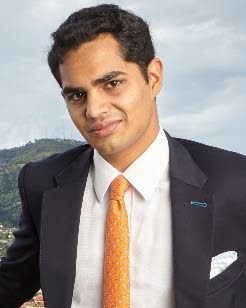Jammin’

KIRAN MATHUR MOHAMMED
kmmpub@gmail.com
Traffic kills. We die little deaths winding our way through the seemingly interminable slog. Barely contained rage is taken out on strangers – and is really an expression of impotence.
Other places are worse. A friend and former boss once described landing in Lagos only to get stuck in gridlock traffic.
After several hours he got a call. The meeting had been shifted to Ghana, because it was quicker to go back to the airport and fly there than wait in the Nigerian traffic.
We are catching up. It is not just traffic; bad transport is dangerous. My father’s lungs were once punctured when an unconcerned car ploughed through his group of cyclists. He recovered.
Others have not. Last Saturday, my former boss’ father was killed cycling on the bus route.
Data is limited. So let’s assume that each commuter driving into Port of Spain for work spends at least two hours of his or her day in traffic. Over their 40 years of working life, that adds up to almost two full years. Multiply these years by the hundreds of thousands of commuters and you realise that traffic alone is a mass murderer.
We are densely populated, but not densely enough to make commutes short. There are too many cars, limited public transport and barely any buses. Our infrastructure is clogged and very expensive to expand. Some of the world’s most heavily subsidised gasoline helps to fuel the problem.
At last week’s Chamber of Commerce post-budget shindig, the Finance Minister said the government’s long-term plan is to throw up flyovers and replace as many traffic lights as possible. This is music to the ears of many an urban planner. Infrastructure spending is one of the most productive forms of government spending, and directly enables growth.
In a local context, infrastructure development in already dense and congested areas (the main cities and highways) involves considerable displacement and disruption. That makes any such development expensive, particularly as our borrowing remains constrained by the size of public debt.
Antanas Mockus, former mayor of Bogota, is one of Latin America’s most radical and effective administrators. He used theatrical policies worthy of his name to reshape Bogota. He hired hundreds of mimes to shame drivers who broke traffic rules; and distributed hundreds of thousands of “thumbs up” and “thumbs down” cards to citizens for them to express approval (or disapproval) at fellow citizens’ behaviour. More serious are the statistics: traffic fatalities fell by 30 per cent under his tenure.
Mockus turned the whole city into a laboratory. How can we do the same?
Private enterprise can step in. To an extent it already has. We have developed a system of shared taxis and mini-buses travelling along fixed routes. It may not be the most comfortable, but it is relatively efficient. This was an organic, indigenous solution to the lack of public transport.
Gustavo Petro (another former mayor of Bogota) once said: “A developed country is not a place where the poor have cars. It's where the rich use public transportation.”
So how can we get people to trade in their cars for public transport?
Taxi companies could offer air-conditioned cars and limit the number of riders to offer greater comfort. They could invest in safety. Private bus companies could do the same, including chargers and sockets so people could work, read or watch films on the way to work. They would have to charge a little more, but it would be worth it.
People could park in centralised car parks, much as they park in suburban train stations in other countries. They could then drive the “last mile” home. What if we converted the swathes of paved land in the Savannah into a car park, and used the proceeds to shuttle drivers into Port of Spain? The reduction in congestion might allow the pedestrianisation of places like Charlotte Street, driving urban regeneration.
And what if the public service experimented by moving working hours either forward or backward to stagger commutes?
Last week I spoke to another old friend, who works at Sustrans. That company has developed 14,000 miles of cycle track in the United Kingdom. It is not clear whether solutions like that should be transplanted wholesale to a developing country like ours. But we can experiment ourselves.
There is a place for state intervention. Economies of scale are crucial in public transit and sometimes only the state can provide them. But we don’t need to wait on the government. After all, we spend enough time waiting in traffic.
Kiran Mathur Mohammed is a social entrepreneur, economist and businessman. He is a former banker, and a graduate of the University of Edinburgh.

Comments
"Jammin’"